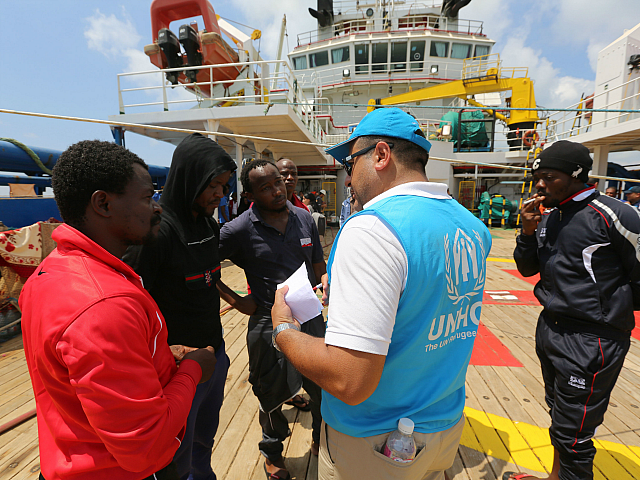European Commissioner for migration Dimitris Avramopoulos has pledged to the United Nations that the European Union is working to “enhance legal pathways” to mass migration, with the Hungarian government condemning the commissioner for calling on member states to accept resettled migrants.
Commissioner Avramopoulos told the United Nations General Assembly on the Global Compact for Safe, Orderly and Regular Migration Wednesday that the European Union (EU) is developing immigration systems to comply with UN’s proposed controversial Global Compact for Migration which aims to institutionalise mass migration at an international level.
“The European Union has made significant progress in developing all the building blocks of a comprehensive migration policy that are contributing to achieve many of the objectives for safe, orderly and regular migration,” he confirmed.
Acknowledging that illegal mass migration “remains a divisive topic across the globe”, Mr Avramopoulos denied that it could be stopped, telling delegates: “The reality, however, is that migration and human mobility are part of our history and are here to stay.”
“We have made a clear call to our Member States to enhance legal pathways to Europe,” he added, saying that it was “essential” to create “a better management of labour migration” in addition to reducing “irregular”, otherwise known as illegal, immigration.
Together we can set up a humane, dignified and secure mechanism for governing human mobility globally. And this is what the Global Compact #ForMigration is about: to deliver concrete results. #UNGA https://t.co/J26erdliuk pic.twitter.com/DXAd7FAQL8
— DimitrisAvramopoulos (@Avramopoulos) September 27, 2018
The Brussels commissioner is also said to have urged EU members to honour their pledges to accept resettled migrants, with Hungarian foreign minister Péter Szijjártó later telling press: “Neither Hungary, nor the other countries of the Visegrád Group, nor any other European country wants to legalise illegal immigration.”
Calling it “unacceptable and outrageous” that Mr Avramopoulos spoke on behalf of the whole EU, despite “many countries” not wanting “resettlement programmes”, Mr. Szijjártó emphasised: “This is why we did not and accept and will not be accepting the UN Global Compact for Migration.”
In June, Mr Szijjártó condemned the proposed global compact, calling it the “African migration package” which benefits only Africa to the detriment of Europe, and in May he also rejected a joint European Union-African migration accord which he said was an “extremely pro-migration declaration” that “further inspires migration”.
Hungary, which contrary to the migration commissioner’s assertion that mass migration cannot be stopped had, in fact, cut illegal immigration through its borders by more than 99 percent, has been a vocal critic of supranational bodies’ and civil society groups’ attempts to enforce open borders and global free movement.
He had previously called unlimited mass migration to Europe "inevitable" https://t.co/LNKntX5q01
— Breitbart London (@BreitbartLondon) December 20, 2017
Earlier this month, the country’s Prime Minister Viktor Orbán warned that plans by the EU to put Brussels in charge of national border protection and asylum policy would mean handing the “keys to the gate” of Europe to open borders eurocrats.
Morocco’s capital Marrakesh is set to host a conference on the 10th and 11th of December where the UN believes its members will accept the Global Compact for Migration.
The first attempt at an intergovernmentally negotiated agreement on immigration, the compact aims to protect the “human rights and fundamental freedoms of all migrants”, combat “xenophobia, racism and discrimination” towards migrants, and strengthen the “global governance” of migration through the UN and its bodies.

COMMENTS
Please let us know if you're having issues with commenting.